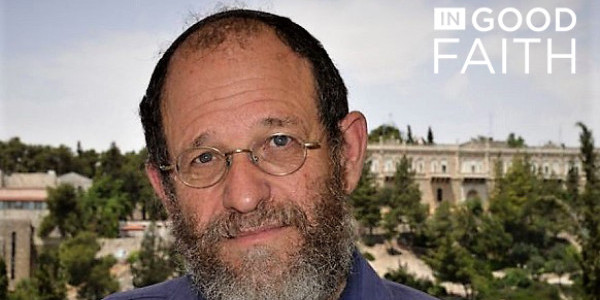Alon Goshen-Gottstein, “Jewish-Christian Relations and Rabbinic Literature: Shifting Scholarly and Relational Paradigms: The Case of Two Powers,”
- in Marcel Poorthuis, et al., eds., Interaction between Judaism and Christianity in History, Religion, Art and Literature (Leiden: Brill, 2009), 15-44
01/06/2009 | Na stronie od 05/06/2025

Source: Academia.edu
Alon Goshen-Gottstein
(The Elijah Interfaith Institute, Israel)
For Gershon Hepner at Seventy חכמה לבב
Introduction
The present discussion seeks to query some of the assumptions that govern much of how Jewish–Christian relations are considered in the context of scholarship of rabbinic and early Christian literature. We find a wealth of references in scholarship to this formative period of Jewish– Christian relations. In fact, for some scholars, Jewish–Christian relations are a major lens through which the rabbinic materials are to be read. I will seek to pose some fundamental questions regarding both the cen- trality of Jewish–Christian relations as a scholarly enterprise, in particu- lar as it pertains to the understanding of rabbinic materials, and to describe different paradigms of how rabbinic materials have been and can be understood in the context of changing Jewish–Christian relations. I will attempt to suggest there is a correspondence between various scholarly paradigms and corresponding relational paradigms, as these find expression beyond scholarship, in a variety of contexts—the acad- emy, society at large, and conscious theological articulations of Jewish– Christian relations. Thus, adopting a particular scholarly paradigm is never divorced from broader patterns governing Jewish–Christian rela- tions, and changes in these relations constitute an invitation to re-exam- ine some of the assumptions that have governed scholarship for over a century. I thus seek in this article to bring to light our hidden assump- tions in working in this field and to explore that which is implicit, and often goes unstated, in scholarship
On the Relative Importance of ‘Jewish–Christian Relations’
Underlying the present collection of essays, the series in which it is featured, and a budding industry of academic enterprises is the assump- tion that ‘Jewish–Christian relations’ are important, perhaps very impor- tant. We recognize the importance of this field from the manifold institutions devoted to its study. In the United States alone the number of academic centers that are somehow dedicated to Jewish–Christian relations is large enough to have led to the creation of a council of such institutions, called Council of Centers on Jewish–Christian Relations. /1 The importance of this area of study is assumed, but rarely discussed. Why, actually, are ‘Jewish–Christian relations’ as important as their manifold academic expressions suggest?
To begin exploring this question, it might be worth comparing ‘Jew- ish–Christian relations’ to ‘Jewish–Muslim relations’, on the one hand, and to ‘Jewish–Zoroastrian relations’, on the other. There is no doubt that ‘Jewish–Christian relations’ play a far more important role in the international intellectual community, in its manifold expressions, than do ‘Jewish–Muslim relations’. If the principle was purely historical, one could argue that at least as much importance should be attached to the latter, given that for so much of Jewish history, Jewish life and creativ- ity took place in the shadow of Islam. Similarly, if historical roots and formation were key, we should expect much more attention to be paid to ‘Jewish–Zoroastrian relations’. That only a handful of scholars world- wide are able to address this field of studies suggests that something other than historical interest in origins and influences is driving con- temporary interest in ‘Jewish–Christian relations’. The obvious alterna- tive to historical interest would be contemporary efforts at coexistence and peace. But that itself makes the gap between ‘Jewish–Christian studies’ and ‘Jewish–Muslim studies’ almost inexplicable. The prover- bial Martian would surely deem ‘Jewish–Muslim relations’ to be of far greater urgency in today’s world. We are led to the conclusion that contemporary interest in Jewish–Christian relations is the product of processes that are broader and more complex than the detached reflec- tion on what areas of study should be cultivated, in order either to do history justice or to best serve today’s pluralist society.
Pobierz załączniki
JEWISH–CHRISTIAN RELATIONS AND RABBINIC LITERATURE—SHIFTING SCHOLARLY AND RELATIONAL PARADIGMS: THE CASE OF TWO POWERS PDF